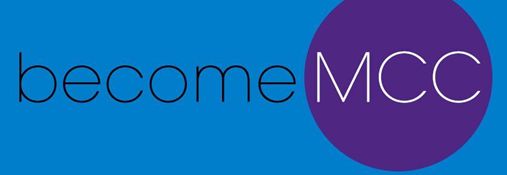Objective:
Develop strong Emerging Church leaders through a training program to utilize existing gifts and establish a knowledge base directly related to church development and growth.
Goals of the Training Program:
- Orientation to MCC and the Emerging Church Program
- Tools to create diverse and inclusive MCC churches
- Build organizational skills directly related to not-for-profit formation
- Learn how to inspire and empower small groups and volunteers
- Increase personal awareness as a ministry leader
- Form a Proposal or Action Plan for a specific Emerging Church
- Build a cohort of colleagues engaged in MCC Emerging Church Development
Persons in the program may already be engaged in Emerging Church development within an Approved Ministry or as an Approved Ministry Leader.
Successfully completing the entire training program leads to certification as an MCC Church Developer.
Emerging Churches Training Program Format:
The Emerging Churches Training program is offered in two parts, four (4) modules for each part, designed as a collaborative experience with synchronous and asynchronous learning activities and specific tasks to equip the Church Developer. A mixture of Face-to-Face online sessions, readings, videos, webinars, and cohort conversations, along with toolkits of adaptable resources are intended to guide various learning styles through the training program.
Emerging Churches Training: Part One – Models and Methods:
Four modules with video, readings, toolkit and webinar for each module. Webinars are on Wednesday’s. Prepare ahead of time for the Webinar discussion on the specific topic.
- Orientation to MCC in the 21st Century – This session explores the ways that MCC carries both movement and church aspects of identity into the 21st century. See more about this online webinar.
- Introduction to the MCC Emerging Church Models – The landscape of new church development includes multiple models and in this session many methods and models are discussed including options for MCC Emerging Churches. See more about this online webinar.
- Building through Diversity – Intersections of race, orientation, gender identity, class, ability, theology, culture, and language all form a unique community of faith. These intersections affect each community and are building blocks for an effective MCC Emerging Church. See more about this online webinar.
- Core Team and Small Group formation. See more about this online webinar.
At the end of Part 1, participants not currently involved in an MCC Emerging Church are invited into a time of discernment as to whether they wish to develop an MCC Emerging Church in the next 12 months. If so, they will continue on to Part 2. Participants actively involved in an MCC Emerging Church automatically begin Part 2.
Emerging Churches Training: Part Two – Proposal and Formation (May 2016):
Four modules with video, readings, toolkit, and webinar for each module. Webinars are on Wednesday’s. Prepare ahead of time for the Webinar discussion on the specific topic. Number of participants and geographic time zone will determine Webinar schedule. This program is designed for persons who have completed Part 1 of the training. The total fee for all Part 2 webinars is $40 (USD).
- Proposal template, demographics, and strategy
- Organization: Administrative, financial planning, reporting
- Partnerships and Planning for worship
- Finalize proposal and authorization
Learning Materials:
Training program materials includes multiple resources in new church development including experts from specific fields related to each module including materials provided by various MCC offices.
- Print and video materials will be available through a Google Drive. Videos will also be available through a private link to the “Become MCC” YouTube channel as an alternative to watching the videos through Google Drive.
- The materials are divided by module, with a new module presented each week of the training.
- Access to the learning materials begins two weeks prior to the first session.
- Registrants are encouraged to engage one session at a time in order to build the knowledge base in a systematic fashion.
Training Methodology and Pedagogy:
The training program is an empowered and collaborative experience that employs best practices and actively applies church development principles. Each participant will engage the material through a blend of both Synchronous Learning (real time engagement and collaboration) and Asynchronous Learning (individual components toward collaboration). The hybrid approach requires the participant to remain actively engaged in the learning process through individual and group activities. Each portion is required to complete the specific part of the program.
Synchronous – The Synchronous learning will be through Adobe Connect.
Cohort Formation
The Synchronous component will occur through an initial online face-to-face session of introduction. The group will become a cohort, or class, that engage in collaborative learning and establish an ongoing support network within MCC.
Live Sessions via Adobe Connect
The Synchronous distance component includes real-time collaboration through online face-to-face group time utilizing Adobe Connect technology in which participants have both voice and video in an up to 90-minute session with a facilitator addressing the topic of the session.
Asynchronous – The Asynchronous learning will begin two weeks prior to the first module of the training program and continue until completion.
Literature Review
Reading lists for each learning component include electronic versions of resources, with some books to be purchased only for specific topics. Access to files for download and book titles will be provided through a file sharing Internet portal which best accommodates the cohort (i.e. google drive).
Video Learning Sessions
Links to videos and access to Webinars will be provided for each learning component.
Chat Discussion
A closed social media portal (i.e. Facebook closed group) will allow a Cohort group to discuss literature and video sessions and provide feedback as a method of collaborative learning. Chat conversation is also available in Adobe Connect during the online face-to-face sessions.





